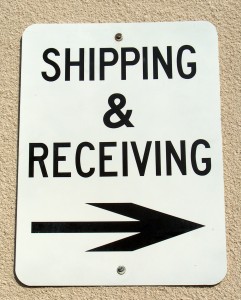
Apple stands out as a strong example of what can happen without proper postponement. When shipping the original iMac in six different colors, each pallet included one iMac of each color, forcing retailers to attempt to sell every unit without any ability to adjust for demand of a specific color. Had Apple implemented appropriate postponement, a logistics provider could have easily rebundled pallets to more specifically fulfill the varying demand and consumer tastes of each location.
Advantages of Postponement
The largest advantage of postponement lies in an overall reduction in the variability of demand.
A full understanding of consumer preferences or demand might not occur until after retail sales have begun. It is only once products are on store shelves that demand can be measured rather than estimated. Further, postponement can permit build-to-order strategies that allow perfect segmentation of user groups and the greatest satisfaction of customer needs.
By working with a logistics provider to implement a postponement strategy, a company can make the most of excessive demands for a specific item and mitigate the risk of shipping a variety of product that does not move from store shelves.
Working with a 3PL for Effective Postponement
Successful postponement implies a certain level of organizational complexity. Requirements for collaboration both internally and externally increase dramatically. Your 3PL must therefore be able to keep pace with the changes.
Non-asset based 3PLs may have an advantage in this respect. They are able to select resources on the basis of their ability to adapt to different manufacturers’ requirements, rather than having to continually reshape their own infrastructure as they work with companies’ individual postponement needs. Packaging, labeling and logistics postponement often work well here.
Supply Chain Visibility Drives Postponement Decisions

Postponement Tradeoffs
While postponement can bring companies significant benefits, there are also compromises to be made in certain areas. Significant improvements have frequently been seen in customer service levels, inventory costs, order fill rates, and lead times. On the other hand, manufacturers usually accept increased costs in areas such as product development and manufacturing. Comparison of the financial advantages and costs, and business judgment concerning less quantifiable but equally important aspects like customer satisfaction all contribute to a decision as to whether to implement postponement.
Internal Changes
While a 3PL may provide the external resources to complete the postponement process, its ramifications and business model requirements run far back into the value stream. It’s important that any company considering implementing a postponement strategy for the first time have a thorough understanding of what changes must occur and who will bear the weight of those shifts.
Regardless of the decision you make, having a logistics provider on hand who is ready to implement a postponement strategy is likely to be a wise decision. At the least, it likely guarantees that their infrastructure is flexible enough to support any other complex logistics strategies you might require and that they are experienced enough to support your everyday operations with ease.